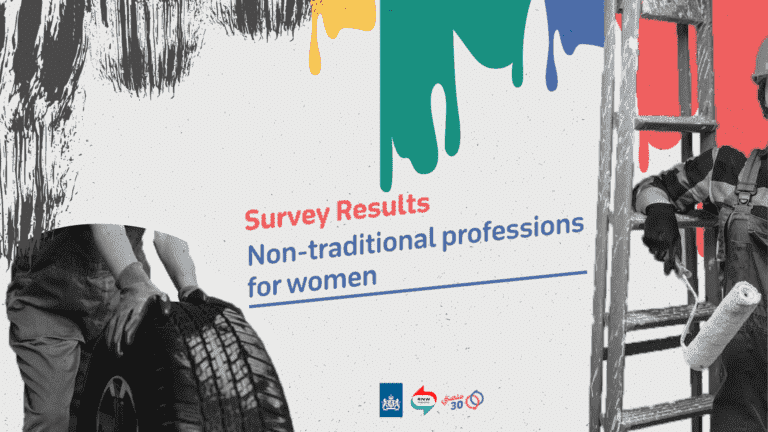“It’s a personal choice, it’s possible and acceptable,” this is how most of the participants describe “non-traditional professions for women” in a survey of the same name conducted by “Manasati 30” during last April. The results were published for the occasion of the International Labor Day, May 1rst.
Most of the participants in the survey said that they have women in their family who work either in a private sector (34%), or the government (29%), or have a personal business (15%).
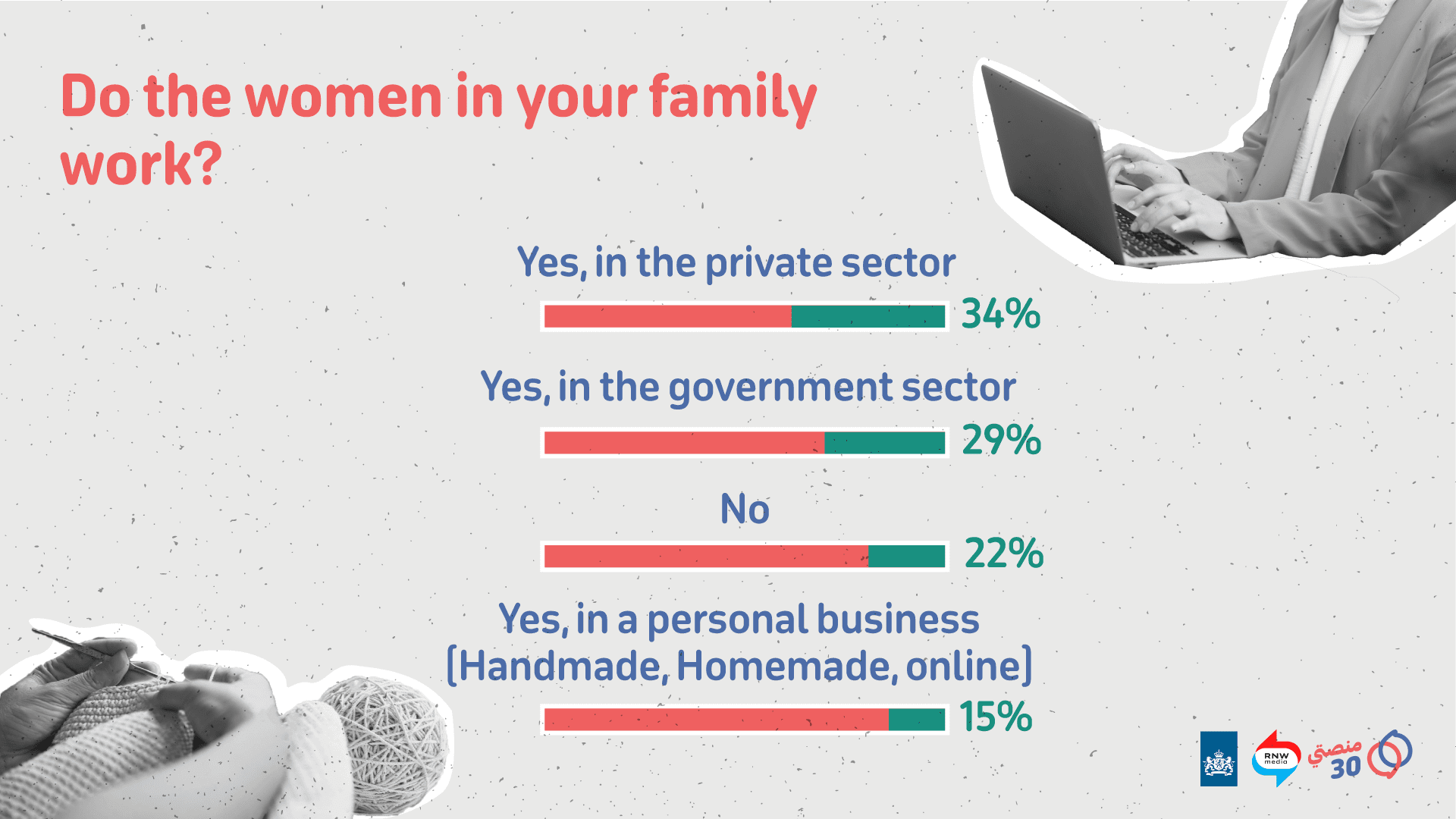
In terms of age, the votes that confirmed that there are women working in their family, the percentage increases with age and vice versa. In terms of geographical differences, the answers came from the governorates as follows:
- Aden: Government sector (45%), private sector (31%), personal business (16%).
- Taiz: Private sector (37%), government sector (24%), personal business (17%).
- Sana’a: Private sector (41%), government sector (25%), personal business (19%).
- Hadramout: Government sector (34%), private sector (16%), personal business (15%).
- Hodeidah: Private sector (39%), government sector (21%), personal business (16%).
- Ibb: Private sector (30%), government sector (18%), personal business (17%).
The majority of participants (58%) say that they consider the differentiation in employment that’s based on gender is a fair behavior, because some jobs are more suitable for men and others are more suitable for women, in contrast to 35% who consider it as “gender-based discrimination”.
In terms of gender differences, males are more likely to describe differentiation based on gender as fair behavior (65%), compared to females (49%), and on the contrary, females are more likely to describe the differentiation as gender-based discrimination (44%), compared to males (28%).
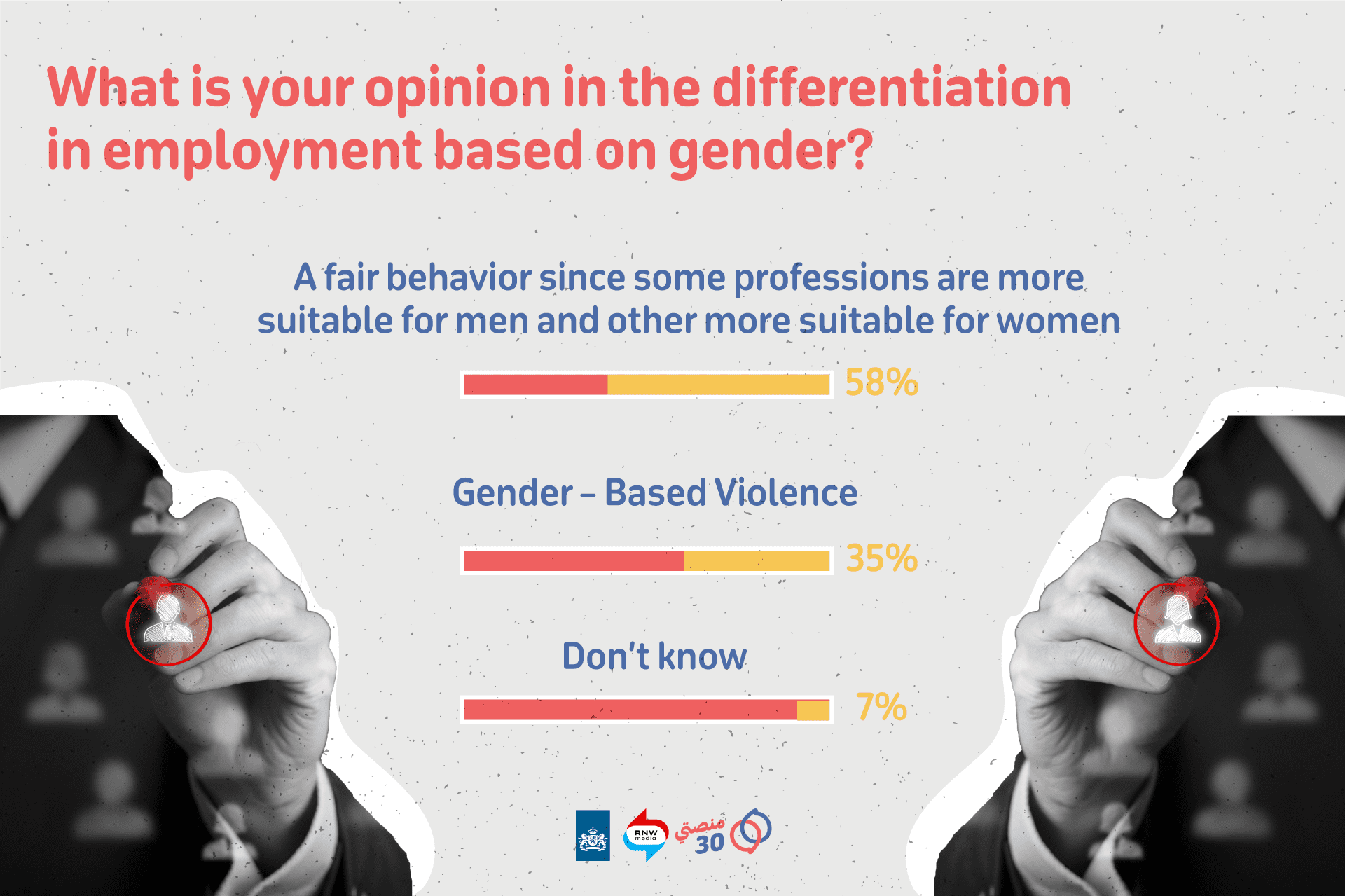
The answers for the first and second questions explain the answers to the third question in the survey, for 49% of the participants described the work of women in non-traditional professions in society, specifically those that are famous for being male-oriented, as a “personal opinion”, and 26% said that it is possible and acceptable, while 12% said that it is inappropriate, and 2% said it is forbidden.
In terms of gender, females were more likely to describe these jobs as a personal opinion (56%), compared to males (44%), in addition, females are slightly more likely to describe these jobs as possible and acceptable (28%) compared to males (24%). As for the geographical differences, there are no major variances.

Despite all this, a large number of the participants believe that there are professions / jobs / roles that women can never practice from their point of view. These professions are, carpentry and construction (61%), mechanics workshops (55%), plumbing (46%), fishing (36%), and others.
These percentages generally include participants from both genders and is not limited to males only, as female votes are consistent with males regarding the inability to practice some professions for women, and they can be detailed as follows:
- Carpentry and construction: 55%
- Mechanical workshops: 49%
- Plumbing: 42%
- Fishing: 30%
- Security and military: 21%
- Head of state: 12%
And overall, other male and female votes pointed other professions that are not possible for women, including: blacksmithing, guarding, transportation driving between governorates, butchering, calling for prayer (Imam), burying the dead, carrying rocks and heavy materials, and others.

In this context, 74% believe that “a woman cannot do every profession, just like a man cannot do every job and profession”. Males here agree more (78%) than females (69%).
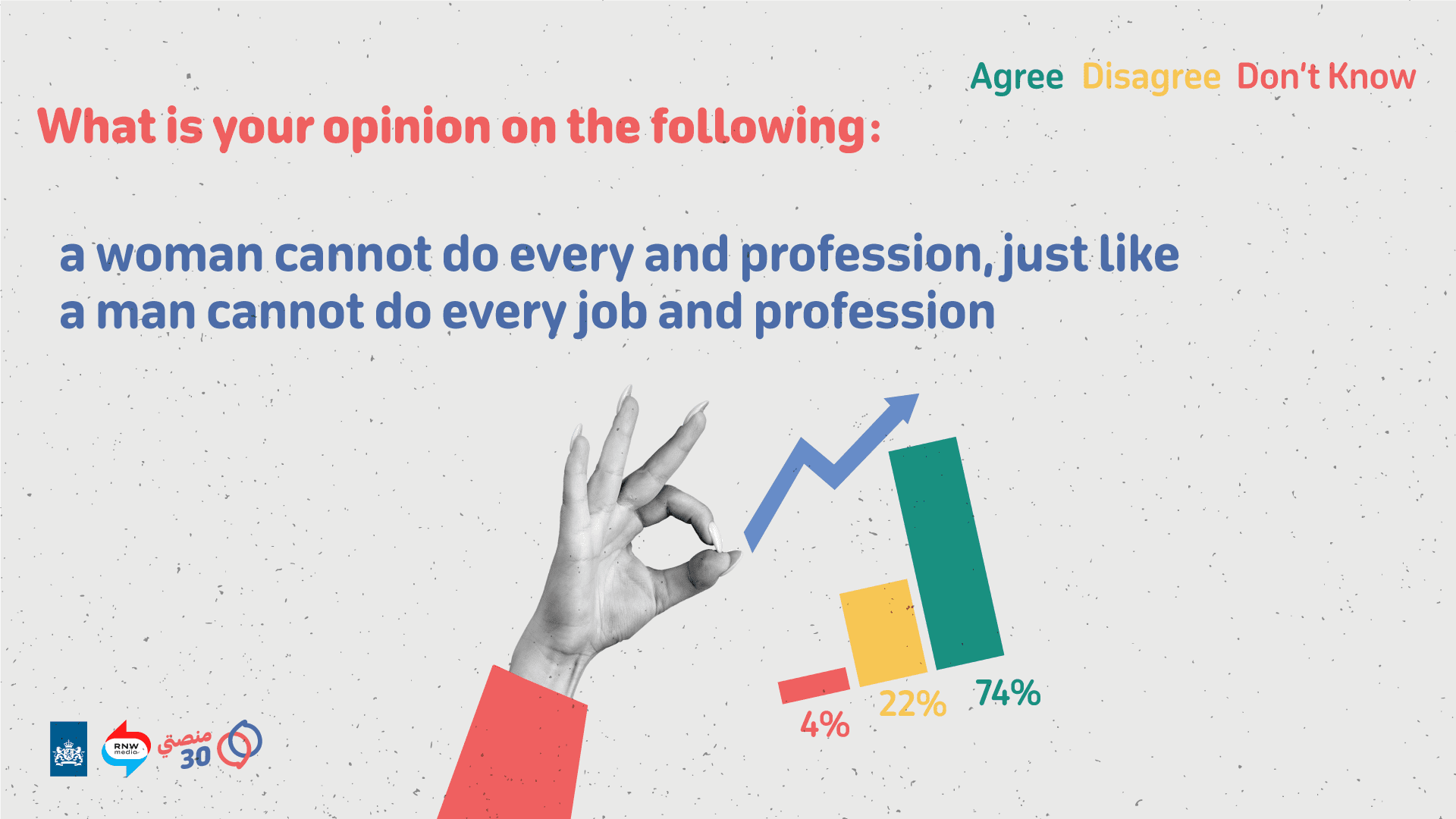
Regarding the reason for prohibiting women from enrolling in non-traditional professions, 40% pointed the finger at “certain traditions and customs”, there is no difference here between male and female votes. While 38% pointed that “women are weak and cannot endure hard labour,” with a difference between male (41%) and female votes (32%).
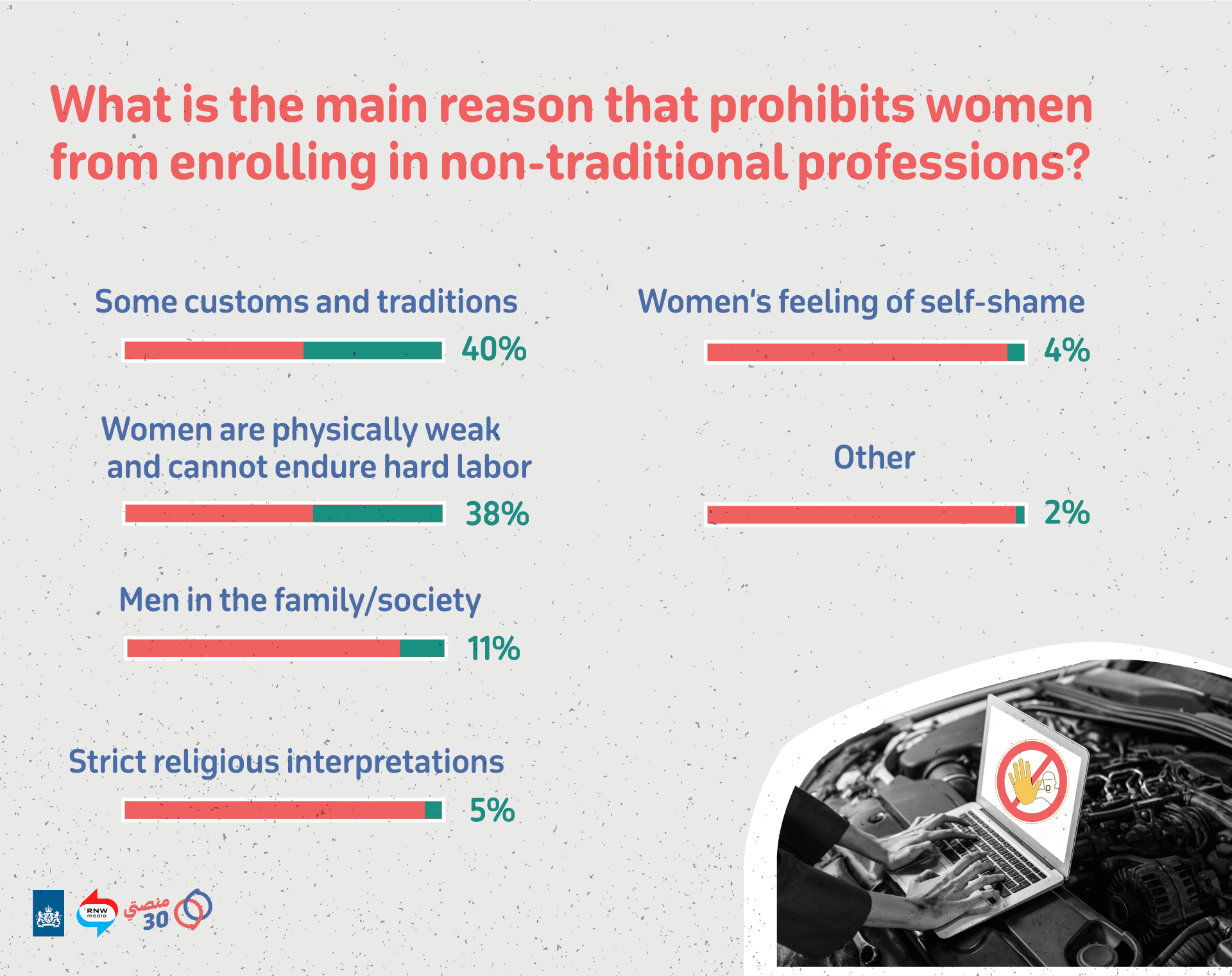
This does not contradict – as it appears from the votes of the participants in the survey – the 73% who are convinced that “women can endure heavy labour, as they do work in farming, harvesting and fetching water.”
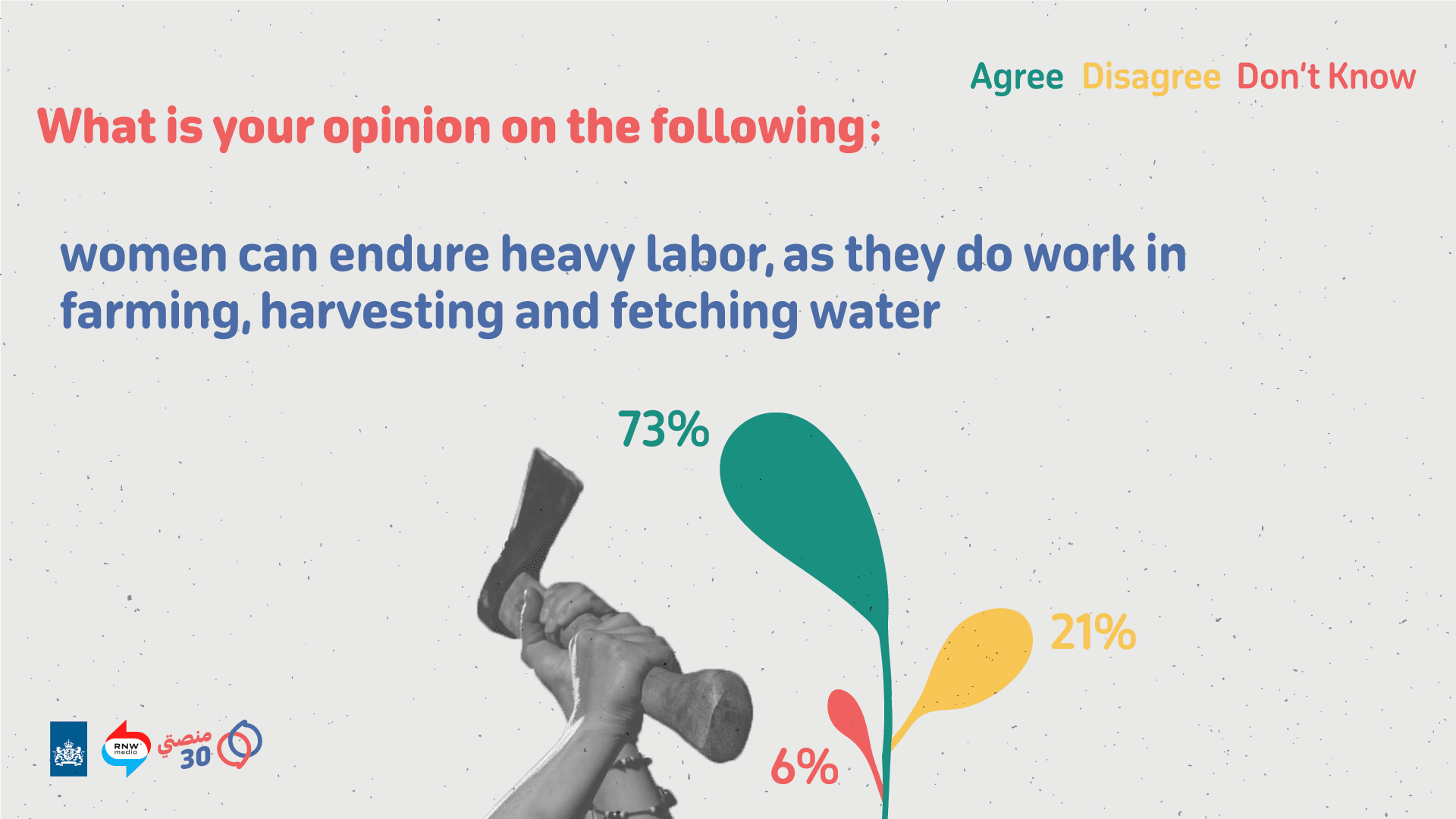
Most participants (86%) agree that “the war and its aftermath have pushed many women into jobs that were previously restricted for men”. Here the elder participants, over the age of 35, have more tendency (89%) to agree than the younger ones under the age of 20 (79%). Also, females here (89%) have more tendency than males (84%).
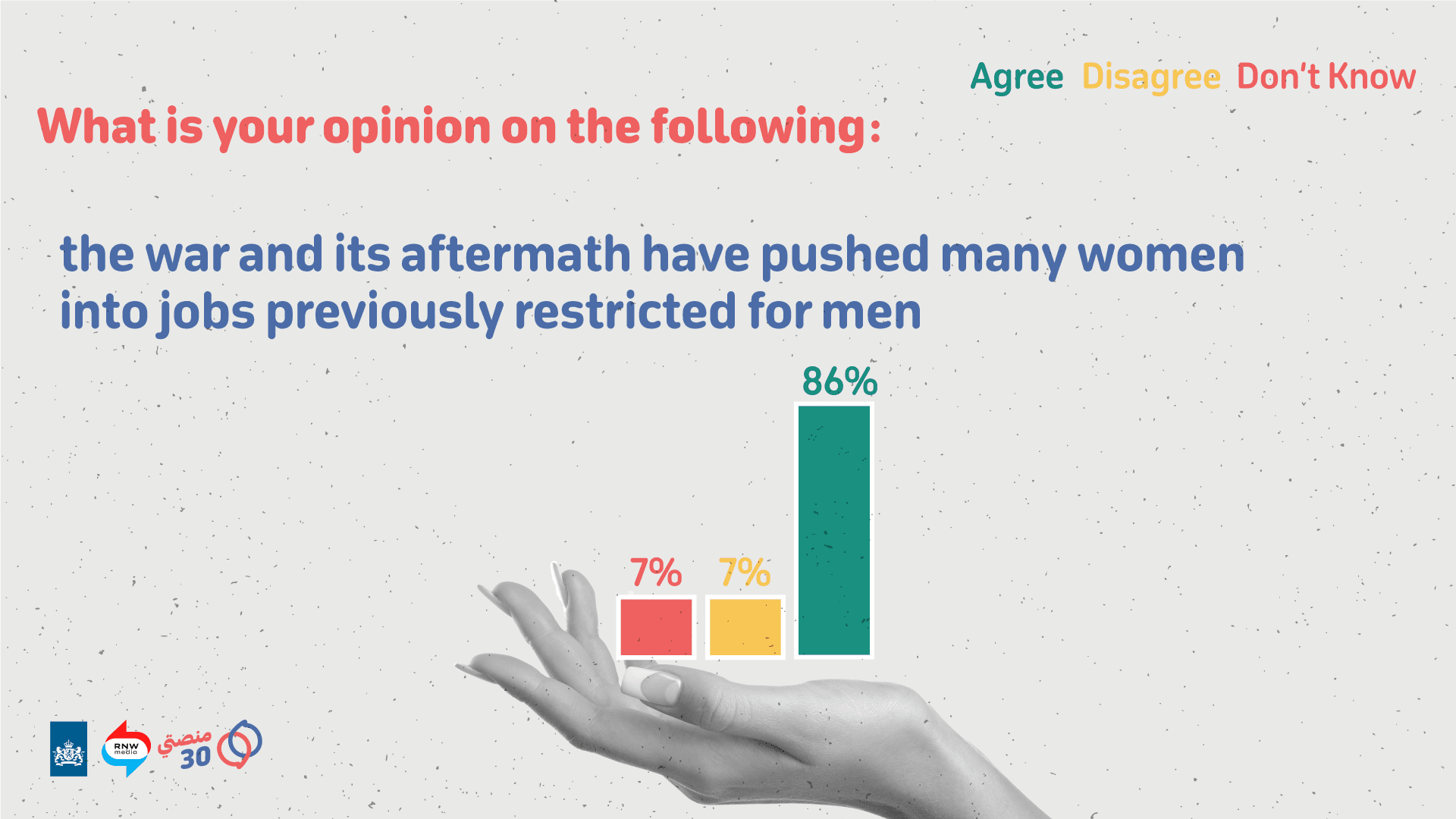
The exact percentage of votes (86%) agree on the necessity of “implementing conventions that remove obstacles that deprive women of fair work opportunities.” The age differences here are similar to the previous hypothesis. Older participants over the age of 35 have more tendency (90%) to agree than younger ones under the age of 20 (82%), females here also have more tendency (92%) than males (81%).
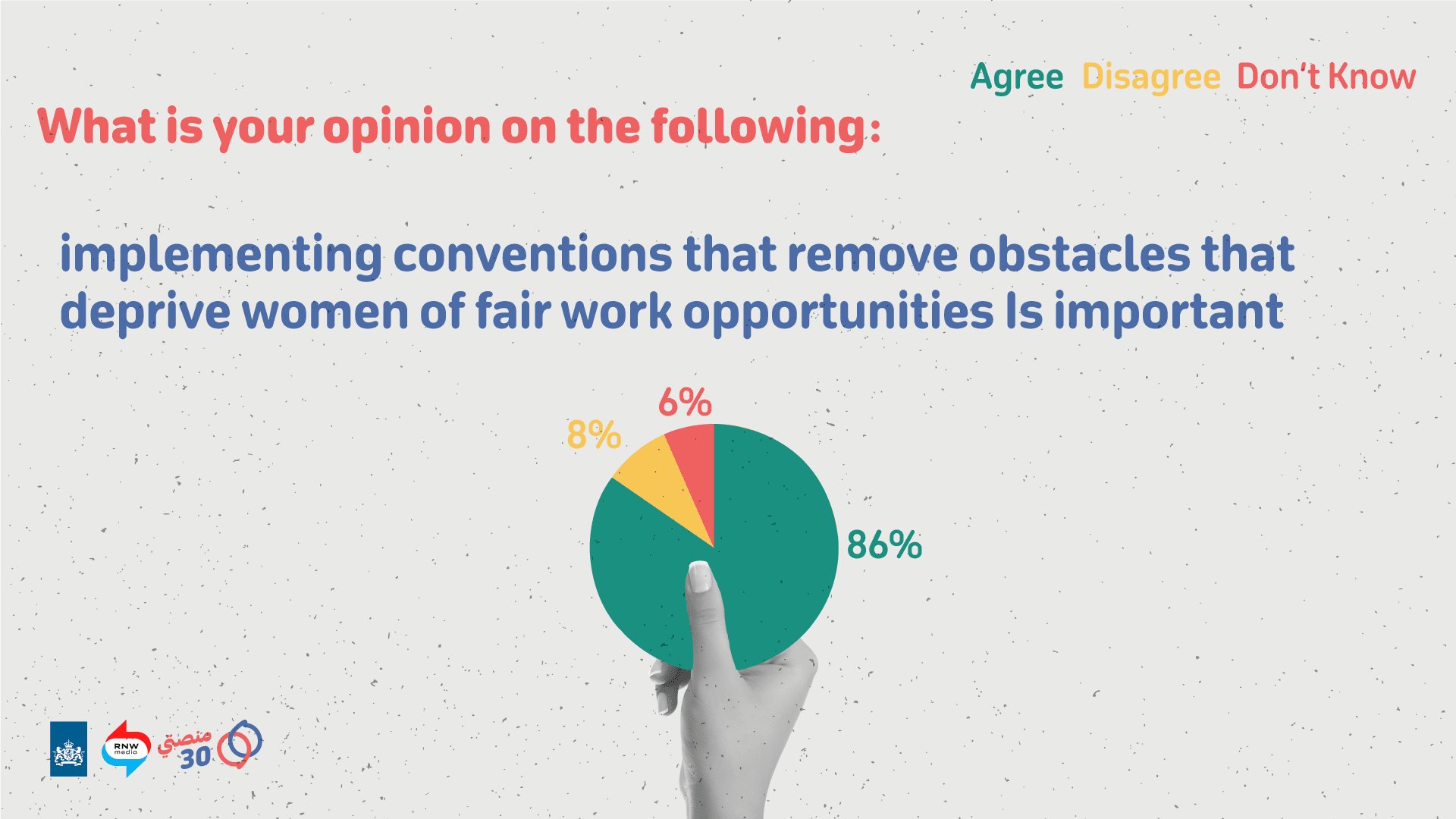
70% of the participants are optimistic that Yemeni women will be able to enroll in many non-traditional professions in society in the upcoming years, and the elder ones over the age of 35 are more optimistic (77%) than the younger ones under the age of twenty (59%).
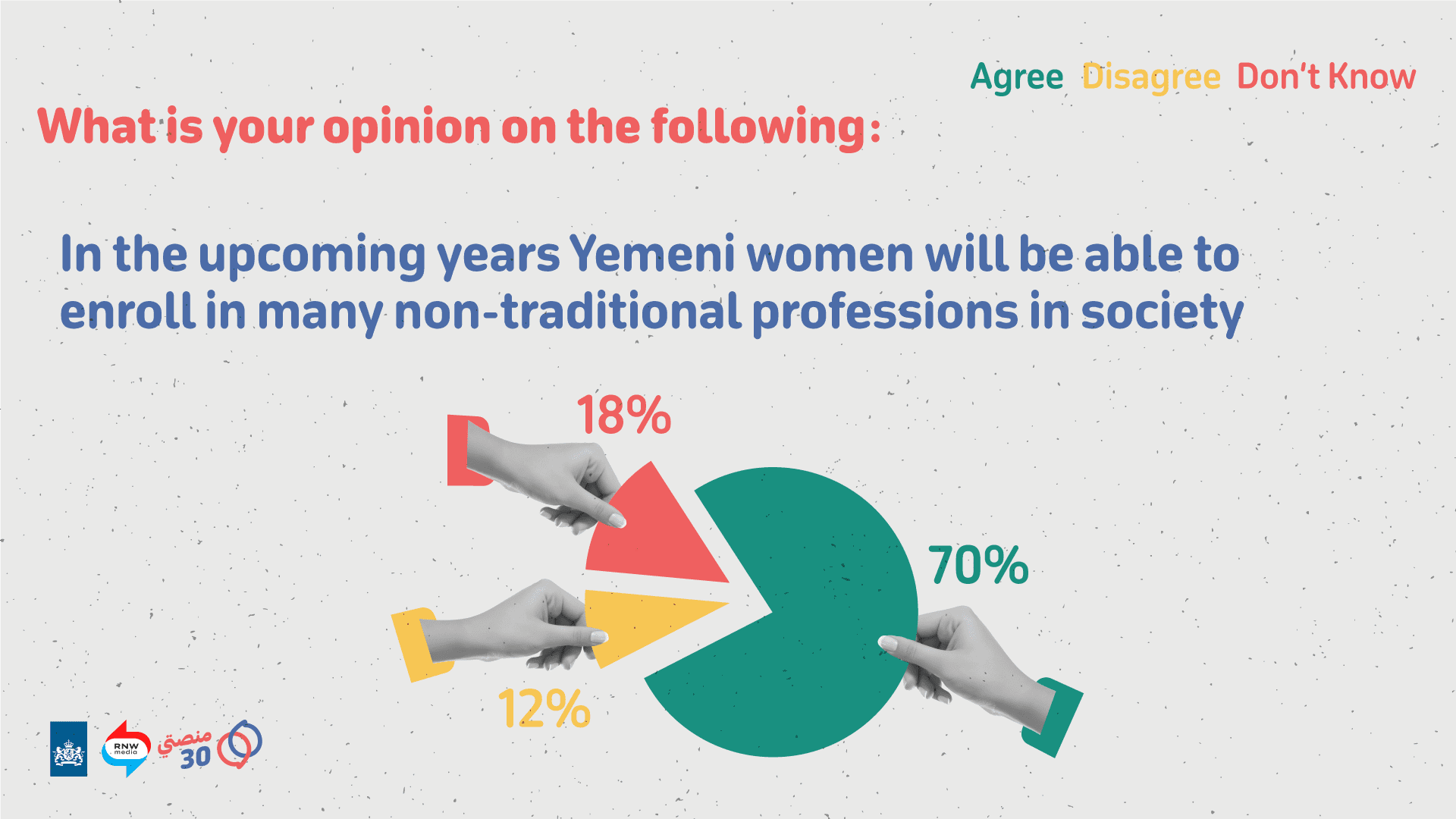
1980 participants participated in this survey in which 59% were males and 41% were females from different governorates, including Sana’a (27%), Taiz (22%), Aden (19%), Hadhramaut (9%), Ibb (8%). Hodeidah (6%), and others (9%).
